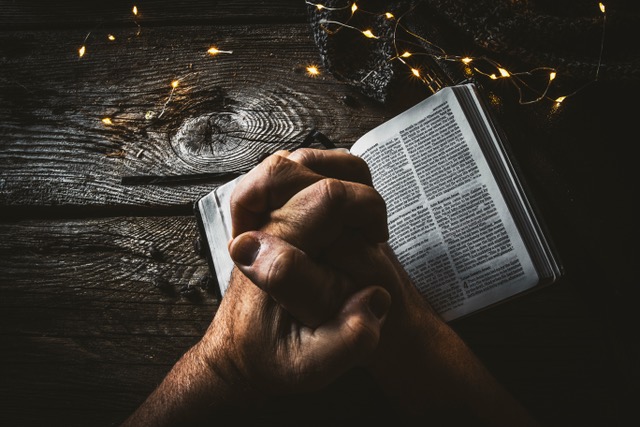Prayer is a vast territory, with room for silence and shouting, for creativity and repetition, for original and received prayers, for imagination and reason….. Prayer forms us. And different ways of prayer aid us just as different types of paint, canvas, color and light aid a painter (Tish Harrison Warren: Prayer in the Night For Those who Work or Watch or Weep, 16)
Last week I talked about welcoming the morning darkness which seems so pervasive as the long nights of winter approach. However it is not just the long dark of the morning that needs to be welcomed. It is even more important to welcome the darkness of the night and all the fears and anxieties it so often brings with it. We need practices that help us embrace the challenges of life and all the feelings of vulnerability and inadequacy that frequently beset us.
As you know, I love creative prayer practices and I love writing my own prayers, but there are times when we feel overwhelmed and the creative juices just don’t flow. At these times, repetitive prayers, like the prayer offices that have sustained much of the church since the 3rd century, sustain me. So last week I started practicing compline, firmly believing that God speaks to us in the dark and through the prayers we inherit from those who have gone before us.
I grabbed my copy of the Celtic Daily Prayer, which has a fantastic selection of compline prayers, one for each day of the week, and started to read. This is a wonderfully enriching practice with which to end the day and I find it enables me to set aside my anxieties and embrace the vulnerabilities that so easily disturb my sleep. A few days later, I was gifted a copy of Prayer in the Night, by Trish Harrison Warren, a book framed around the practice of compline. In this insightful book, she explores her own season of doubt and loss as a result of two miscarriages and wends her way through themes of human vulnerability, suffering and God’s seeming absence. She comments that:
“Mysteriously, God does not take away our vulnerability. He enters into it. Jesus left a place where there is no night to enter into our darkness. He met with blisters, and indigestion, with fractured relationships and the death of friends, with an oppressive empire, the indignity of poverty and the terror of violence….. To look at Jesus is to know that our Creator has felt pain, has known trouble, and is well acquainted with sorrow. (Prayer in the Night 29)
Then she goes on to explain how the prayers and practices of the church, especially Compline, helped her hold onto her beliefs and kept her in the way of Jesus.
Like Tish, I find that ancient prayers compiled into the practices of morning and evening prayer and Compline can be some of the most stabilizing practices during hard times. I love knowing that the prayers I pray are the same ones that Christians have prayed throughout the history of Christianity. I love knowing that millions of people of faith before me found strength and courage through these prayers, and believe that many more after me will pray and be strengthened by the same prayers.
What I have never done however is use the prayers like a form of Lectio Divina, meditating on phrases, allowing them to speak to me of deeper meanings and aspects of God. Tish uses the compline from The Book of Common Prayer, and focuses the first section of her book on the prayer “Keep watch, dear Lord, with those who work, or watch or seep this night, and give your angels charge over those who sleep.” She points out that Jesus often responded to darkness by working, watching and weeping and that we can join with him in doing the same. Compline provides an opportunity to join our own weeping souls with the tears and agony of all who weep – past, present and future. For me there is great comfort in that thought. I do not weep alone. I do not suffer alone and always, through entering into prayers like this I never stand alone, no matter how dark the night may seem.
I particularly love Tish’s comments on the last phrase of the compline “And all for your love’s sake” She explains:
If this Compline prayer walks us slowly through a long, dark night, this last line – ‘and all for your sake. Amen- is the glint of sun rising in the East. The unshakeable reality of love breaks across the shadows of vulnerability and death, and we see that this prayer can only be prayed if there is a God who loves us. We weep because we can lament to one who cares about our sorrow. We watch because we believe that Love will not abandon us. We work because God is restoring the world in love. We can sleep because God governs the cosmos out of love. (Prayer in the Night 164)
All prayer is an expression of our faith in the enduring nature of God’s love, and the practice not only of Compline but of other traditional repetitive prayers is something that grounds us firmly in that trust. It is something that helps us through both the day and the night. It is the same in the traditional liturgical form of service which I did not grow up with but now cherish. Learning about the origins and meaning of prayers in a Eucharistic service was illuminating and inspiring for me. The voice of God is often loudest in the prayers we inherit from our forebears. I heartily recommend that as an additional exercise for the season of darkness that you read through these posts – Instructed Eucharist 1 and Instructed Eucharist 2 – and immerse yourself in the richness of the heritage we are privileged to enjoy. You may also enjoy this downloadable booklet from Kate Kennington Steer – a haiku and art reflection for the prayer offices of the day.
Reading Prayer in the Night, sent me looking for other Compline prayers to add to my supply. This last prayer comes from the compline in the New Zealand Prayer Book. As I read through it today I felt enfolded in the loving presence of God. I hope you do too.
Lord,
It is night.
The night is for stillness.
Let us be still in the presence of God.
It is night after a long day.
What has been done has been done;
what has not been done has not be done;
Let it be.
The night is dark.
Let our fears of the darkness of the world and of our lives rest in you.
The night is quiet.
Let the quietness of your peace enfold us,
all dear to us,
and all who have no peace.
The night heralds the dawn.
Let us look expectantly to a new day.
new joys,
new possibilities.
In your name we pray.
Amen.
As an Amazon Associate I receive a small amount for purchases made through appropriate links. Thank you for supporting Godspace in this way.
We are collecting recipes across our Godspace community for our first-ever cookbook. Send your recipe written in your own words, where it came from, and why it’s special to you to godspacelight@gmail.com – if you send 3 or more recipes in, you will receive a FREE digital copy of the finished cookbook! For more information check out this post: https://godspacelight.com/2022/08/03/the-great-godspace-cookbook-gathering/


